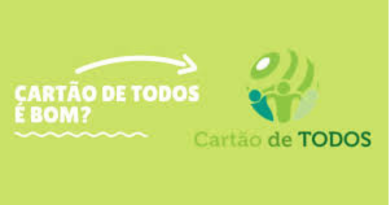Bolsa Família is now a Brazilian aid
Since the 1940s there have been government debates on how to help families living in poverty and extreme poverty.
Several proposals were presented, implemented, but even so the problem was resistant to all the measures already presented.
In 1995, when the FHC Government - of President Fernando Henrique Cardoso, implemented proposals that were successful and accepted, but it was in 2004, through the government of President Luiz Inácio Lula da Silva (PT), that the family allowance was created .
Discover the program that benefited millions of families and gained international notoriety.
Bolsa Familia
Before the creation of Bolsa Família, there were programs such as Bolsa Escola, which paid a monthly income to students who regularly attended classes, Bolsa Alimentos and Auxílio Gás, also implemented in governments prior to the Lula Government.
Bolsa Família is the name given to the program that unified and expanded the other programs developed and implemented by governments prior to 2004.
The Federal Government's Income Transfer Program was considered one of the main programs to combat poverty in the world.
The good result of the unification and expansion of Bolsa Família, reflected that it gained prominence in international newspapers, which did not skimp on praise defending that the program increased access to education, which represents the best weapon, in Brazil or anywhere in the world, against the poor.
.Since then, the PBF, as it became popularly known, drew the attention of the UN - United Nations, and has been indicated by it to developing countries.
Does the Program Still Exist?
Yes, but it was renamed adhering to new criteria to be benefited. However, it maintains the initial objective, which is to help families in poverty and extreme poverty fight hunger by delivering monthly financial aid, to add to the family income, reducing their precariousness.
For many families, unfortunately these auxiliary incomes are the only ones to meet their basic needs.
The program, now baptized as Auxílio Brasil, was established after the end of Emergency Aid payments, which was developed to guarantee families an income destined for emergency situations.
This project was implemented for the first three months of the pandemic, launched in April 2020, and extended until October 2021, due to the devastating spread of the virus.
When the end of Emergency Aid was announced, the current government had already developed the implementation of Auxílio Brasil, which would replace Bolsa Família, and expand the range of benefits to families destined for it.
Those who already received the Bolsa Família, did not need to be registered again, started to receive the benefit automatically.
In January 2022 it was found that more than three million new families benefited from the program.
At the beginning of the program, priority was given to families with people in child labor, quilombolas, indigenous peoples and metal and recycling collectors.
It is estimated that this number of families reached will be tripled as the program moves forward in an insightful way.
Who Can Benefit?
First, you need to look for the CadÚnico unit in your region to register, which will be analyzed using the proven data.
Carry all your personal documentation, yours and that of all the people who live with you.
The supporting documents are: RG, birth certificate of all children, marriage certificate, or declaration of stable union, proof of current address, your and your spouse's work card.
This assessment is carried out by the Ministry of Citizenship, which in turn is responsible for the social and sports development of the federal government.
After being evaluated, the amount of your benefit will be calculated, which averages R$ 217.00.
Medium, because the benefit is made up of nine modalities, 3 of which are basic core.
The modalities that make up the benefit are: early childhood benefit, family composition benefit, extreme poverty overcoming benefit, citizen child aid, transition compensatory benefit, school sports aid, junior scientific initiation scholarship, rural productive inclusion aid, productive inclusion aid urban.
For each family, a different value is allocated, due to the need to which it fits, therefore, the need to prove all the documentation of the family members.
These modalities mentioned above are included within the Auxílio Brasil Program.
The requirements to benefit from the program are:
Poor or extremely poor families, this category is given to families whose per capita income does not reach or exceed R$ 105.00 and R$ 200.00, which are composed of pregnant women, children, adolescents and young people up to 21 years of age.
If you are already registered in the Bolsa Família program, and you no longer receive the benefit, look for the CadÚnico in your city to update your data.
And in case of address and city changes, it is your responsibility to communicate them in advance.
If you fit any of the criteria listed above, seek guidance from your city's CadÚnico unit. We wish all Brazilian citizens success in registering for the social benefit.



